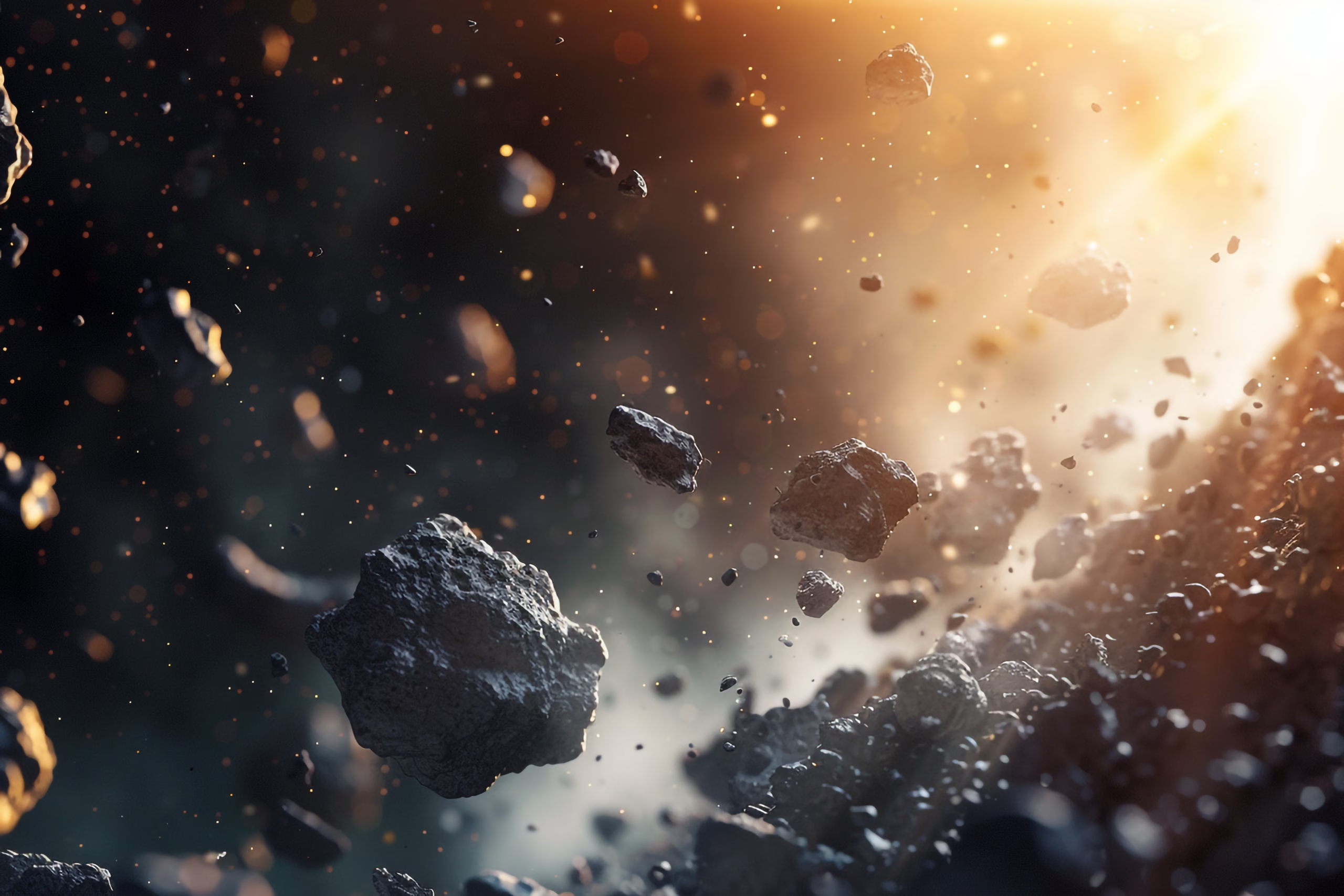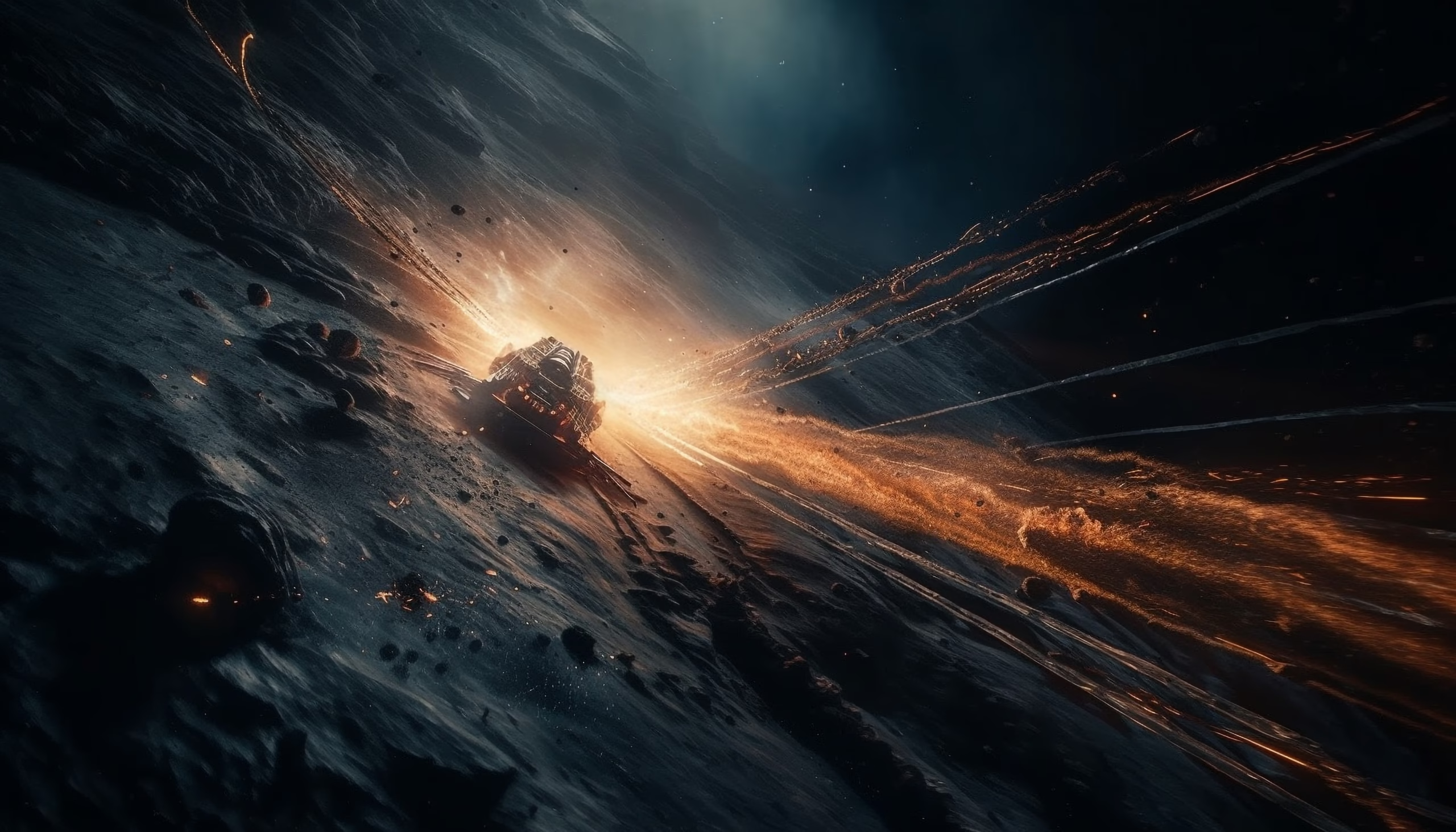Space mining is known as the process of obtaining valuable resources from celestial bodies, such as asteroids. It’s a concept that has fascinated scientists, engineers, and space enthusiasts for decades. With Earth’s natural resources becoming increasingly scarce, space mining could provide a solution to many of our global challenges. As technology advances, the dream of mining asteroids for precious metals, water, and other materials is becoming more plausible.
But why does it matter? Because space mining could revolutionize industries on Earth, boost space exploration, and reduce the strain on our planet’s resources.
The Rise of Space Mining: A New Era of Resource Exploration
Space mining is more than just science fiction. It’s a rapidly emerging field that’s drawing attention from both private companies and governmental space agencies. With advances in robotics, spacecraft technology, and asteroid detection systems, the possibility of mining asteroids is within reach. Companies like Planetary Resources and Deep Space Industries are already planning missions to mine asteroids.
The potential to tap into resources beyond Earth is opening a new era of resource exploration that could benefit both our planet and future space missions.
Understanding the Untapped Wealth of Asteroids
People often refer to asteroids as “flying gold mines” because they contain significant quantities of valuable metals and minerals. Some asteroids are rich in precious metals like platinum, gold, and rhodium. Others contain rare Earth elements, which are essential for modern electronics. Additionally, water, which can be split into hydrogen and oxygen for rocket fuel, is abundant in many asteroids.
By mining these asteroids, we could unlock a wealth of resources that are otherwise inaccessible on Earth. This untapped wealth offers an exciting potential to fuel future space missions and reduce reliance on terrestrial resources.
How Space Mining Could Revolutionize the Global Economy
Space mining has the potential to revolutionize the global economy in several ways. First, it could create a new industry that generates millions, if not billions, of dollars. The extraction of precious metals from asteroids could flood the market, reducing the scarcity and price of these materials on Earth. Additionally, resources like water and fuel could support space exploration, making missions to the Moon, Mars, and beyond more feasible and affordable.

Furthermore, the technology developed for space mining could spill over into other sectors, driving innovation and creating jobs in fields like robotics, materials science, and aerospace engineering.
The Science Behind Space Mining: Extracting Resources from Asteroids
The process of space mining involves identifying and reaching asteroids, extracting materials, and transporting them back to Earth or using them in space. Space mining starts with asteroid detection using telescopes and advanced imaging systems to locate asteroids rich in resources. Once we identify them, we will send spacecraft to land on or near the asteroid’s surface.
The mining team will use robotic mining tools, such as drills, harpoons, and robotic arms, to extract valuable resources. The extracted materials can either process in space or transport back to Earth. The science behind space mining involves developing technologies that can handle the extreme conditions of space while efficiently extracting resources.
Top Resources in Asteroids
Asteroids contain a wide variety of valuable resources, but the most sought-after include:
- Platinum Group Metals (PGMs): These metals, including platinum, palladium, and rhodium, are crucial for electronics, catalytic converters, and even medical equipment.
- Gold: Known for its value on Earth, gold is present in significant quantities in some asteroids.
- Rare Earth Elements: High-tech electronics, including smartphones, computers, and electric vehicles, use these.
- Water: Water is essential for life support and can be converted into rocket fuel, making it a key resource for long-term space missions.
- Iron and Nickel: These metals are critical for constructing spacecraft and building infrastructure in space.
These resources are only the beginning; there may be a lot more out there just waiting to be found.
Space Mining Companies: Leading the Charge in Asteroid Exploration
Several private companies are at the forefront of space mining, with ambitious plans to mine asteroids for valuable resources. Planetary Resources and Deep Space Industries are two of the most notable companies in this space. These companies aim to develop the necessary technologies for asteroid mining, from spacecraft to extraction tools. They are also exploring how to use resources mined from asteroids in space, such as using water for fuel or building materials for space habitats.
By developing these technologies, these companies are helping pave the way for the future of space mining and its commercial viability.
Challenges in Space Mining: What’s Stopping Us from Reaching Asteroids?
While space mining holds great potential, there are several challenges that must be overcome. The first challenge is the cost. Space missions are expensive, and sending mining spacecraft to asteroids requires significant investment. Another challenge is the technology itself. We currently lack the necessary tools to mine asteroids efficiently and cost-effectively. There are also logistical challenges, such as returning the resources to Earth or using them in space.
Additionally, the legal and regulatory frameworks for space mining are still unclear. Space mining is known as the process of obtaining valuable resources from celestial bodies, such as asteroids.
Future of Space Exploration
Space mining is closely tied to the future of space exploration. As we venture further into the cosmos, the need for resources will grow. Mining asteroids could provide the fuel and materials necessary to support missions to the Moon, Mars, and beyond. Humans could use water extracted from asteroids to support life on long-duration missions, while they could use metals and minerals to build structures on other planets.Space mining could make space exploration more sustainable and reduce our dependence on Earth-based resources, allowing humanity to live and work beyond our planet.
Legal and Ethical Considerations
Space mining raises significant legal and ethical questions. Who owns the resources extracted from asteroids? Is it the country that launched the mission, the company that mined the resources, or the international community? The Outer Space Treaty, signed in 1967, currently prohibits any country from claiming ownership of celestial bodies, but it doesn’t address private companies.
Ethical concerns include the potential impact of space mining on space environments, the exploitation of resources without considering future generations, and the fairness of resource distribution. These issues will need to be resolved as the industry develops.
The Economic Potential of Space Mining: What’s at Stake?
The economic potential of space mining is staggering. It’s estimated that the value of the resources in asteroids could reach trillions of dollars. If successful, space mining could reduce the cost of space exploration, provide critical resources for industry, and lead to new economic opportunities. The market for rare Earth metals, for example, could see a dramatic shift if these resources were easily accessible from space. However, the true economic impact won’t be fully realized until the technology is developed, tested, and proven viable.
Future Prospects: Will Space Mining Become a Reality in the Next Decade?
While space mining is still in its infancy, it’s likely to become a reality within the next decade. The rapid advancements in space technology, combined with increasing interest from both private companies and government agencies, are paving the way for asteroid mining missions. In the next few years, we could see the first space mining probes launched, with the possibility of resource extraction occurring shortly thereafter. While there are still many hurdles to overcome, the future of space mining looks promising, and it could become a key part of humanity’s expansion into the cosmos.

